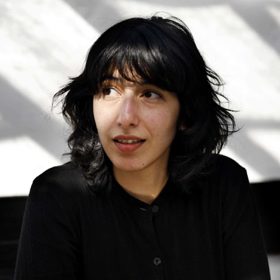Studies suggest How may I help you officer? is the single most disarming thing to say and not What’s the problem? Studies suggest it’s best the help reply My pleasure and not No problem. Studies suggest it’s best not to mention problem in front of power even to say there is none. Gloria Steinem says women lose power as they age and yet the loudest voice in my head is my mother. Studies show the mother we have in mind isn’t the mother that exists. Mine says: What the [ ] are you crying for? Studies show the baby monkey will pick the fake monkey with fake fur over the furless wire monkey with milk, without contest. Studies show to negate something is to think it anyway. I’m not sad. I’m not sad. Studies recommend regular expressions of gratitude and internal check-ins. Enough, the wire mother says. History is a kind of study. History says we forgave the executioner. Before we mopped the blood we asked: Lord Judge, have I executed well? Studies suggest yes. What the [ ] are you crying for, officer? the wire mother teaches me to say, while studies suggest Solmaz, have you thanked your executioner today?
Published:
2016
Length:
Regular
Literary Movements:
Contemporary
Anthology Years:
2023
Themes:
Identity
Politics
Literary Devices:
Anaphora
a figure of speech in which words repeat at the beginning of successive clauses, phrases, or sentences
Dialogue
conversation between two or more people as a feature of a book, play, or movie
Repetition
a recurrence of the same word or phrase two or more times
Template Poem
a poem in which a poet uses a predetermined form to structure the poem. For example: a multiple-choice format, a recipe, directions, the Pledge of Allegiance, the Miranda Rights. A template poem borrows an already established form to provide structure and commentary.

